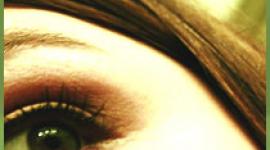Dissociation is Triggering the Panic Attacks
 Q:I am someone who suffers from panic disorder and generalized anxiety. Your theories on dissociation and how these detached/spacey feelings trigger panic attacks really struck a chord with me. Dissociation is one of my biggest symptoms. I am currently taking a drug called Clonopin to control my panic attacks. In general I am more relaxed, however, it does nothing to help the dissociation. In fact, I would say the drug makes me feel more spacey/bewildered and detached. Now that I realize this is a major panic trigger, is there anything I can do or tell myself while in this state to halt my panic attacks?
Q:I am someone who suffers from panic disorder and generalized anxiety. Your theories on dissociation and how these detached/spacey feelings trigger panic attacks really struck a chord with me. Dissociation is one of my biggest symptoms. I am currently taking a drug called Clonopin to control my panic attacks. In general I am more relaxed, however, it does nothing to help the dissociation. In fact, I would say the drug makes me feel more spacey/bewildered and detached. Now that I realize this is a major panic trigger, is there anything I can do or tell myself while in this state to halt my panic attacks?
A: We have found over the years, dissociation is playing a major role in spontaneous panic attacks. Those of us who do dissociate have had this ability since we were children, although many of us have forgotten we did it as children. It seems some of us 'grow' out of it but when as adults we experience major stress and/or are not eating or sleeping properly, this ability is activated once again.
The major way we do this during the day is by staring. Either out of a window, at the wall, TV, computer, book etc. Staring can induce a trance state and most of the dissociative 'symptoms' show the trance states we can reach are quite deep. Fluorescent lighting also appears to be a cause for the trance states. The research on nocturnal panic attacks shows they happen on the change of consciousness from dreaming sleep to deep sleep or deep sleep back to dreaming. The same way as we can change consciousness during the day when we induce the trance states.
The essence of all of this is to be (a) aware of how we can induce these states during our normal daily activity and why they happen at night, and (b) lose our fear of them so we don't panic.
I dissociate quite a bit, but now I don't panic. I am simply aware of how easily I can do it. If I begin to get the sensations of dissociation, depending on what I am doing, I'll either break my stare/concentration or let it happen! Needless to say I don't let it happen while driving, I simply break my stare. Sometimes I will say to myself, 'Not a good time to do this' or words to that effect.
We teach people why there is nothing to be frightened of by this ability and that they are not going insane. After all, we as individuals are proof we don't go insane. If that was going to happen it would have happened to us a along time ago!
We also teach people to become aware on a moment to moment basis if they need to, of how it happens and how it can happen so easily. When people can see this, we teach them to work with their thinking and not buy into the panic/anxiety thoughts, 'What's happening to me'...'I'm going insane' etc. We all put ourselves under more stress by the way we think about our symptoms. This only makes us more vulnerable to it happening. The harder we resist it, the worse it becomes.
We teach people to break their stare by blinking, moving their head, their gaze etc, let go of their thoughts and to get on with what ever they are doing. If they are still anxious or feel as if they may panic, we teach them to let it all happen and not buy into it with their thinking. With practice people can get the dissociation and the attacks down to about thirty seconds with no residual anxiety or fear.
Meditation is also a great way to desensitize ourselves to the various trance states plus a great way to practice non resistance and working with thoughts.
Have you spoken to your doctor about your medication? The increase in symptoms may be a side effect.
next: Electrical Surges
~ all articles on insights into anxiety
~ anxiety-panic library articles
~ all anxiety disorders articles
APA Reference
Gluck, S.
(2008, October 3). Dissociation is Triggering the Panic Attacks, HealthyPlace. Retrieved
on 2026, March 3 from https://www.healthyplace.com/anxiety-panic/articles/dissociation-is-triggering-the-panic-attacks



